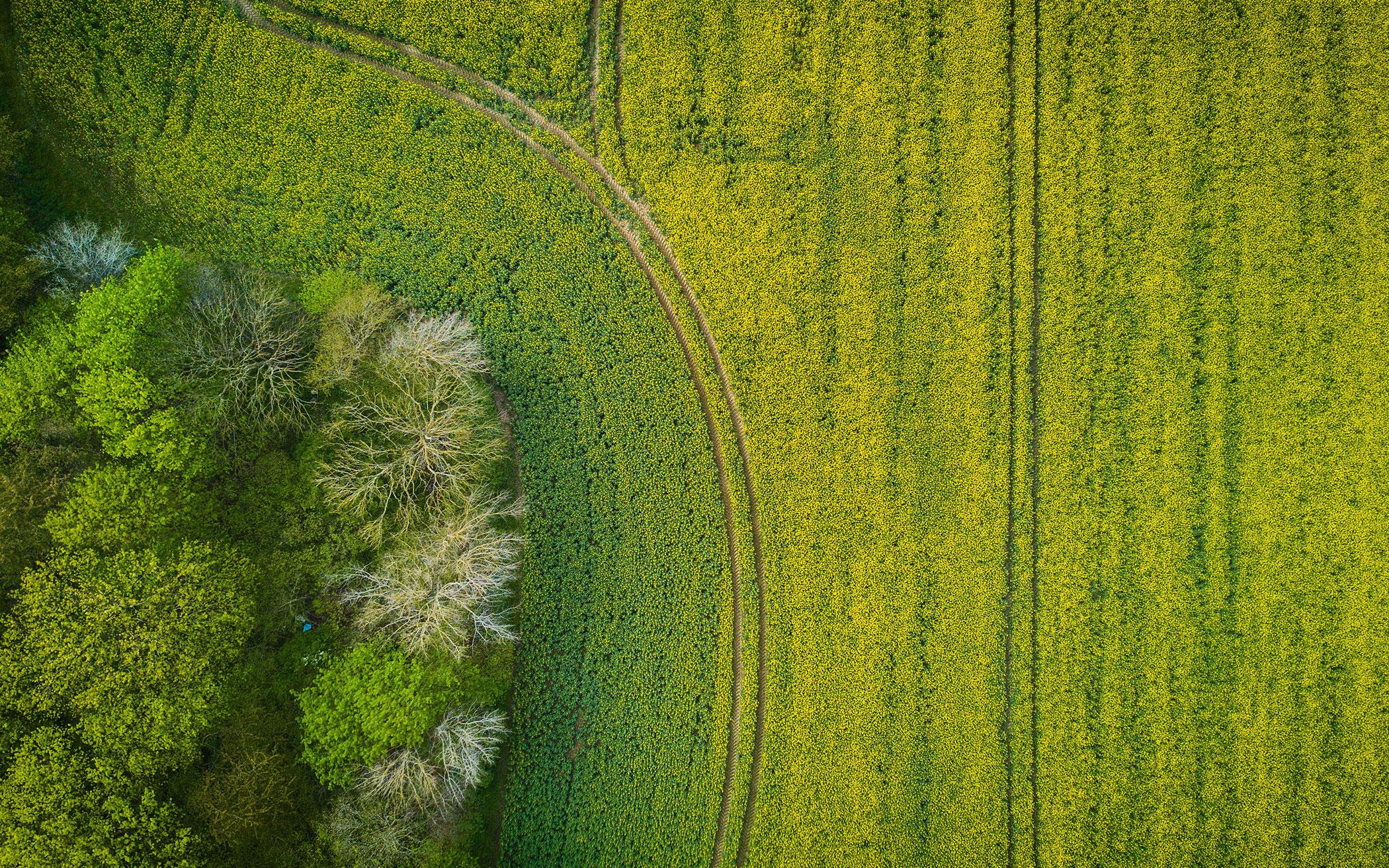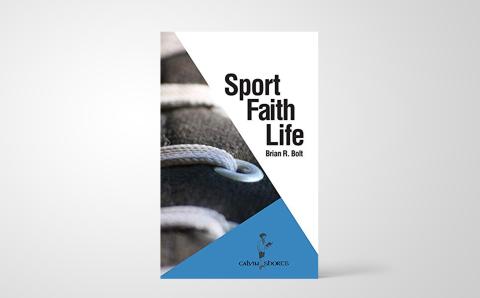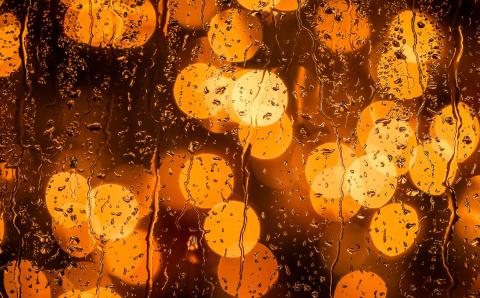Since the creation of the world we have depended on plants to sustain and nourish our bodies. Given plants’ importance, we can understand why God placed humans in the first garden “to work it and take care of it” (Gen. 2:15). God recognized the inestimable worth of the creation God had made. It was central to human enjoyment and survival. As Genesis 2:9 tells us, “The Lᴏʀᴅ God made all kinds of trees grow out of the ground—trees that were pleasing to the eye and good for food.”
God caused these beautiful trees to grow in an ancient garden called Eden. The creation story reveals that God saw the garden as extravagant in its provision and in its beauty. Not many places in the world today still meet both of those descriptions. Either the land is beautiful and kept protected, or it is good for food and ravished with ceaseless planting and harvesting. The Genesis account tells us there was a time when a garden could be both pleasing to the eye and good for food. That is still possible today.
In his commentary on Genesis, John Calvin maintained that all of creation tells us about God: “The intention of Moses, in beginning his Book with the creation of the world, is, to render God, as it were, visible to us in his works” (Vol. 1). By understanding God’s works we can better understand God. Similarly, by misunderstanding God’s works we can misunderstand God. This is what Thomas Aquinas was talking about when he suggested that “any error about creation also leads to an error about God” (Summa Contra Gentiles, 11.3). For better or for worse, our view of creation influences our view of God. If we want to know more about God, then we ought to listen to God’s assessment of creation found in Genesis 2:9. God intended God’s creation to be both good and beautiful.
God’s assessment of the beauty and utility of the garden is the same as Eve’s assessment before she disobeyed God and took the forbidden fruit. Notice that God and Eve both evaluate the garden as good and beautiful. The difference is in their responses. God noted the beauty of the garden and then assigned humanity to work it and take care of it—to make it prosper and grow (Gen. 2:15). When Eve noted the beauty of the same garden, she decided to take it for her own immediate gain (Gen. 3:6). She saw that it was good, but rather than promoting its well-being as God had intended when entrusting it to humanity, she desired to take it for herself.
It is not surprising, then, that the Hebrew term used to describe the precious beauty of the garden, חמד (châmad), is the same term the Hebrew language uses to express greed or covetousness. History shows that precious and beautiful objects evoke a desire in the beholder to obtain them. Thus Job laments, “They knew no quiet in their bellies; in their greed (châmad) they let nothing escape” (Job 20:20, NRSV). Right from the start, God made that which was pleasing and good. Shortly thereafter, we learned to steal from God’s creation in search of our own personal pleasure.
When Adam and Eve cared for and preserved the beauty and fruitfulness of the garden, they walked with God and had all their needs met. When they disobeyed God and took what was not given to them to consume, they were cast from the garden and from the presence of God. The moment they stopped caring for the garden, the garden stopped caring for them. From there, Genesis reveals, Adam was made “to work the ground from which he had been taken” (Gen. 3:23). He had wrongfully taken from the gift of abundance; the result was toil and hardship in expansive fields. The wisdom of the Proverbs proved right: “Precious (châmad) treasure remains in the house of the wise, but the fool devours it” (Prov. 21:20, NRSV). The author of Genesis would argue the same could be said of one’s garden.
Faithful stewards of creation face the same task today that God gave to Adam and Eve. But humanity learned to exploit creation, and that’s proven to be a hard lesson to unlearn. We have lost sight of the value of beauty in creation, preferring its quick and short-lived liquidation for immediate monetary gain. But God calls us instead to recapture a healthy appreciation for the intrinsic and extrinsic value of creation for both enjoyment and benefit.
The expectation is not that we preserve all of creation. God created us as compelled consumers—we must eat to survive. God also created us with the ability to care for the same plants and animals on which we rely. Sadly, the blessing of consumption often outweighs the corresponding blessing of stewardship. While we cannot put the proverbial fruit back on the tree, a new future is possible. We can give life to that which God uses to give life to us.
Our view of creation influences our coinciding view of God. In creation, God has chosen to reveal God’s self as the One who makes things that are both beautiful and good. If we lose sight of the breadth and depth of creation’s value, we lose sight of the breadth and depth of our experience of God. When gardens become devoid of beauty and are used only for our benefit, our coinciding view of God often follows close behind. If God becomes devoid of beauty in our eyes, God retains value for us only in providing increased wealth, security, or comfort. We consider God good only if God gives us good gifts. If creation is valued only for what it offers in a given moment, that same measure of worth is transferred to God. In God’s garden, we are compelled to hold these two values together. The garden was good both for what it gave and for its beauty. We can say the same of God.
This is the nature of stewardship. To be true stewards, we must experience God’s desire for the world. Stewards are able to delight in what they are caring for not because of what it gives them, but because of the One who entrusted it to them. The psalmist reminds us that “The earth is the Lᴏʀᴅ’s, and everything in it” (Ps. 24:1). As stewards of God’s creation, “we are appointed earthkeepers and caretakers to tend the earth, enjoy it, and love our neighbors. God uses our skills for the unfolding and well-being of his world so that creation and all who live in it may flourish” (Our World Belongs to God, 10).
Questions for Discussion
- The article claims that “our view of creation influences our view of God.” What is your view of creation? In what ways has it changed over time?
- What are some of the ways we may have foolishly devoured God’s creation without properly caring for it?
- Have you seen God as primarily the creator of the beautiful or of the good? Why?
- How may we equip each other, as a church community or otherwise, to be better stewards of God’s beautiful and beneficial creation?
About the Authors
Cody J. Zuiderveen is an ordained minister in the Christian Reformed Church serving as a missionary with Resonate Global Mission in Haiti. He lives with his wife, Jessica, and two children in Port-au-Prince, Haiti.
Grady H. Zuiderveen is a Ph.D. candidate in forest resources in the Department of Ecosystem Science and Management at Penn State University and an Au Sable Graduate Fellow for Christian environmental stewardship.







